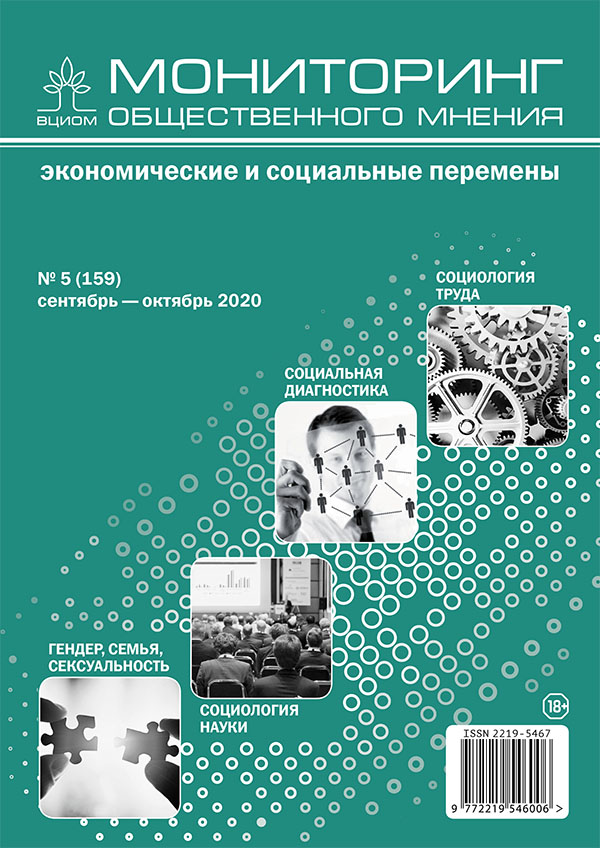Russians’ Attitudes towards Global Risks: Socio-Demographic and Psychological Factors Affecting People’s Perception of Threats
DOI:
https://doi.org/10.14515/monitoring.2020.5.1700Keywords:
global risks, fears, pandemic, climate change, group identity, social trustAbstract
The paper substantiates the importance of studying the dynamics and patterns of the Russians’ attitudes towards global risks in a pandemic. Based on the analysis of international studies the authors examine different components of collective fears related to global risks in various regions of the world as well as social and psychological types of people’s attitudes towards global risks. The paper presents the findings of a Russian nationwide survey conducted in September 2019 (N = 1600) and aimed at identifying collective fears and social and psychological features of the attitudes towards global risks across various socio-demographic categories of the population. The study shows that confidence in the face of global threats is supported by individual’s social resources: higher education, high social status, high level of economic well-being, opportunity to live in a large city with good infrastructure, and opportunity for geographical mobility. Predictors for anxiety related to global risks are frequency of exposure to TV watching and focus on the news about global disasters; a sense of vulnerability related to poor financial well-being and rising inequality; group and territorial self-identification; and a general level of anxiety about the future. Higher anxiety levels come with low social trust, conservative settings and orientation towards authoritarian leaders. Analysis of the dynamics in the perceptions of global threats in 1996, 2006 and 2019 points to increasing war-related anxiety and stable levels of disquietude related to epidemics, natural disasters. The study identifies the most common strategies of response to global threats among Russians, more specifically, a focus on collective resistance to threats, fatalistic ignorance and religious traditionalism.
Acknowledgments. The study is supported by the Russian Science Foundation grant (project no. 18-18-00439 “Psychology of human beings in conditions of global risks”).
Downloads
Published
How to Cite
Issue
Section
License
Copyright (c) 2020 Monitoring of Public Opinion: Economic and Social Changes Journal (Public Opinion Monitoring) ISSN 2219-5467

This work is licensed under a Creative Commons Attribution-NonCommercial-ShareAlike 4.0 International License.






